Table of Contents
- Different Types of Depression
- Common Symptoms of Depression
- Most Common Causes of Depression
- Diagnostic Process for Depression
- Hormones and Depression: The Impact of Hormones on Mental Health
- How to Deal with Depression Symptoms Related to Hormonal Dysfunction
- Hormonal Treatment for Depression
- How Can We Help?
Depression – a subject often brushed aside or discussed in hushed terms has come to the forefront of modern-day life. All too often, we hear of another person who took their life due to depression. The fact is that there are many types of clinical depression, and now, on top of everything else, social isolation and the drastic changes in our daily life are increasing that risk – and likely will for quite some time to come. In this review, we take a traditional look at depression types, causes, symptoms, and treatment options available to men and women today.
While Covid-19 may emerge as the latest reason why many people exhibit new feelings of depression, it is crucial to understand why and how the problem exists. The coronavirus may also uncover previously undiagnosed depressive conditions in some people.
One of the biggest problems we face today is knowing how to identify the signs that someone is depressed. Unlike the common cold that brings nasal congestion and cough, the warning signs of depression may not be so apparent. Many people will say they are fine when deep down, they are screaming out for help. If this is happening to you, it is crucial to reach out to a medical professional who can help identify the cause and offer the appropriate treatment.
Statistics from 2017 show an estimated 17.3 US adults reported at least one major episode of depression during the prior year. That translates to over 7% of men and women over age 18, with women having an 8.7% incidence over males with 5.3% risk.
Symptoms of depression can make it challenging to get through the day. Many of the causes can overlap, increasing the risk factors.
Different Types of Depression
Before we discuss the different types of depression, it is crucial to answer one essential question:
What is depression?
Depression is a serious mood disorder consisting of changes in emotions, feelings, and actions. For people dealing with depression, the signs often go far beyond sadness. Doctors look at symptoms that persist for longer than two weeks as being signs of depression.
What are the different types of depression?
According to the Diagnostic and Statistical Manual of Mental Health Disorders (5th edition), there are nine distinct types of depression, listed here alphabetically:
Atypical Depression
Unlike common types of depression, atypical depression often results in mood improvements during pleasurable times or events. Women are more likely to get this type of depression, and at an earlier age onset. People with this form of depression are more likely to oversleep and overeat. They may report feelings of irritability and suffer from relationship problems. Heaviness feeling in the limbs is a common symptom. Suicidal risks and anxiety disorders increase with atypical depression.
Symptoms of atypical depression also include increased appetite and weight gain, sleeping more than 10 hours a day, heavy limb sensation of more than an hour per day, and interpersonal rejection sensitivity affecting social or work life. Issues such as insomnia, headaches, eating disorders, and poor body image may also be present.
Psychotherapy and medications are the most common treatments for atypical depression. Some people may require time to try different combinations of medicines to find the right one.
Bipolar Disorder
Unlike the standard ups and downs of daily life, people with bipolar depression typically cycle through extreme mood swings that can disrupt their everyday life. Also called bipolar affective disorder or manic depression, this condition results in periods of alternating depression and elevated moods.
An individual may feel abnormally happy, euphoric, and energized during the high states and experience depression, hopelessness, weight fluctuations, sleep disturbances, sadness, suicidal thoughts, negativity, and uncontrollable crying during the lows. Impulsive, distracted, irritable, restless, unrealistic, grandiosity, agitation, or reckless behaviors may occur during manic periods. High sex drive, inflated self-esteem, unattainable actions and plans, and delusions or hallucinations are also possible during this state. There is no defined frequency or pattern to these changes in mood. In extreme cases, a person may require hospitalization.
Medication and psychotherapy are the primary treatments for bipolar disorder.
Dysthymia
People who have dysthymia (persistent depressive disorder) often describe it as though they are on autopilot, living with a persistent low mood. It is a chronic form of depression, lasting longer than two years, that can interfere with daily activities. Patients report feelings of inadequacy, hopelessness, low self-esteem, and lack of productivity. These feelings often impact work, relationships, school, and daily life. Others may see the individual as pessimistic or a complainer.
Symptoms of dysthymia include changes in appetite (under or overeating), insomnia, excessive sleep, fatigue, poor concentration, irritability, anger, social isolation, sadness, and guilt. Trouble making decisions, low self-esteem, feeling down, hopelessness, and loss of interest in daily activities are likely.
Many people with dysthymia often feel as though this is their life, and nothing can be done. Ruling out medical causes of any symptoms is necessary. Treatments may include psychotherapy and medication. Lifestyle changes that include daily exercise, proper nutrition, regular sleep hours, and adjusting life skills may help.
Major Depression
The most common type, also called unipolar depression or major depressive disorder (MDD), has many people in this category experiencing recurrent episodes of depression throughout their lives. MDD is associated with persistent sadness, low or negative emotions, and a lack of interest in outside activities and stimuli.
Major depression symptoms include agitation, irritability, restlessness, lethargy, exhaustion, weight changes (loss or gain), and suicidal thoughts. An individual with MDD may withdraw or lash out at loved ones, avoid social activities, have trouble focusing, and see only negative and not positive solutions to situations.
Talk therapy and medication can help people with major depression cope with their day to day lives. In this category, we also find the following subcategories of depression:
- Catatonic Depression: This type of depression often influences behavioral issues and motor problems. Catatonia can interfere with daily life and increases the risk of significant difficulties associated with individual well-being.
- Melancholic Depression: People in this category often face a loss of interest in once-loved activities as well as weight loss.
Postpartum Depression
Women sometimes experience postpartum depression (PPD) in the days, weeks, or months after giving birth. Hormonal changes during this time can lead to alternations between blissful feelings and overwhelming sadness and crying. While hormone changes are natural and may last for up to a couple of weeks, longer-lasting PPD can affect a mother’s ability to care for her child and get through her daily life.
Signs of PPD include feeling down, fatigue, irritability, loss of interest in activities, withdrawing from friends and family, anxiety, panic attacks, worry, changes in sleeping and eating habits, and racing thoughts. Some women may not experience these changes until a few months after giving birth. In extreme cases, a woman may have thoughts of paranoia, harming the child or herself, or hallucinations.
PPD often goes away on its own; however, medications or psychotherapy may help. Getting adequate sleep, exercising, asking for help with the child, proper nutrition, and a supportive network of friends and family can also help.
Premenstrual Dysphoric Disorder
PMDD affects women and is a cyclic, hormone-based disorder that shows up as a more disabling and severe form of premenstrual syndrome (PMS). Although it can occur at any time throughout the reproductive years, the average onset age is 26.
PMDD symptoms begin during the late luteal menstrual cycle phase following ovulation, enduing shortly after the onset of menstruation. Increased feelings of anxiety, depression, tension, irritability, and suicidal thoughts may vary from one cycle to the next, with some months considerably worse than others. Other symptoms can include lack of concentration, appetite changes, breast swelling or tenderness, muscle and joint pain, bloating, fatigue, insomnia, or hypersomnia.
PMDD typically goes away during pregnancy and following menopause. A downside to PMDD is that it increases the risk of PPD. Treatment may include antidepressants such as selective serotonin reuptake inhibitors (SSRIs), over-the-counter pain relievers, birth control, psychotherapy, surgical removal of the ovaries, mindful meditation, warm baths, and switching from tampons to pads.
Psychotic Depression
When depression occurs along with some form of psychosis, a person may also experience delusions or hallucinations. Geriatric patients are most prone to this condition. Individuals dealing with psychotic depression have an increased risk of harming themselves, and the suicidal rate is higher than with major depression.
Symptoms of psychotic depression include the typical signs of depression, along with hallucinations or delusions, often with a theme such as delusions of poverty, guilt, or illness. Poor concentration, low self-worth, and sadness are likely. The individual may see things that are not real or hear voices that are not present.
The most common form of treatment is a combination of antipsychotic and antidepressant medications. Electroconvulsive therapy (ECT) may be beneficial, especially in older patients who need to avoid the medication side effects.
Seasonal Affective Disorder
Although some people may experience this form of seasonal depression in the spring or summer, the most common time for SAD is in the fall and winter when the hours of sunlight decline. SAD is often categorized by feelings of hopelessness, poor concentration, lack of energy, appetite and sleep changes, loss of enjoyment in activities, and even thoughts of suicide or death.
For those who do experience the SAD in the winter, oversleeping, relationship troubles, weight gain, carbohydrate cravings, and heavy feelings in the legs and arms are other symptoms. Once the seasons change, the symptoms typically disappear. SAD can be especially problematic for students who move to college from a warmer climate to a northern climate. Changes in the amount of sunlight can alter the biological clock and reduce serotonin and melatonin levels.
Medication, light therapy, and psychotherapy can all help treat SAD.
Situational Depression
Also called adjustment disorder, situational depression is the result of a specific incident, such as a loss of a loved one, divorce, injury, or any significant life change. This type of depression usually begins within three months of the cause and starts to recede within six months.
Symptoms are similar to those of MDD. Psychotherapy or group counseling can help get a person through a trying time.
Common Symptoms of Depression
Although every type of depression has its own list of symptoms, many are similar for each one, such as feelings of:
- Sadness
- Irritability
- Sleep issues
- Eating problems (too much or too little)
- Fatigue
- Loss of interest in activities
- Poor concentration
What does depression feel like when you are dealing with it?
Many of the physical symptoms of depression can lead to pain, such as headaches, muscle and joint aches, or stomachaches. On an emotional level, a person can feel worthless, sad, empty, frustrated, or even suicidal.
Mild depression symptoms can leave a person feeling a sense of hopelessness, emptiness, or restlessness. Many of the symptoms are the same in men and in women.
Severe depression symptoms can lead to anger, suicidal thoughts or attempts, digestive problems, loss of employment, and a general inability to get through the day.
Depression can also worsen conditions such as:
- Arthritis
- Cancer
- Obesity
- Diabetes
- Cardiovascular disease
- Asthma
Most Common Causes of Depression
Causes of depression vary considerably from person to person. Genetics, environmental factors, life stressors, hormonal changes, medical conditions, and even some medications can increase the risks.
Here are some of the most common causes of depression and why they are a factor:
- Family History: Genetics is a leading cause of major depression, and having a first-degree relative who also suffers from MDD significantly increases the risks. Dysthymia, atypical depression, PPD, and SAD risks also increase due to a family history of depression. Genetics are also the most common cause for the development of the bipolar disorder, as a first-degree relative with this condition increases the risk by 60 to 80%. Premenstrual symptoms may also have a higher incidence in families, which could increase PMDD disorders.
- Brain Chemistry or Structure: Numerous areas of the brain may lead to dysthymia. Lack of sunlight in the winter can impact brain chemistry and reduce melatonin and serotonin levels, resulting in SAD. Differences in brain structure, including chemical neurotransmitters, may increase the risk of atypical depression.
- Traumatic or Stressful Events: The death of a loved one, divorce, job loss, financial problems, or abuse (physical, verbal, sexual) can all cause MDD. Dysthymia risk increases in those individuals who experienced parental loss during childhood, financial problems, traumatic events, and high-stress levels. Environmental factors such as a stressful event coupled with genetics can increase the risk of bipolar disorder. Childhood trauma is also one of the biggest risk factors for psychotic depression, as is physical or sexual abuse. Any type of emotional stressor, raising a special needs child, caring for a challenging infant, or changes in social relationships can increase PPD risk.
- History of Other Types of Disorders: Anxiety, post-traumatic stress disorder, and other types of mental disorders can increase depression risks, especially with dysthymia. SAD, bipolar disorders, and cyclothymia may also increase the risk of atypical depression. PPD increases PMDD risk.
- Medical conditions: Chronic illness, attention-deficit hyperactivity disorder (ADHD), chronic pain, insomnia, Parkinson’s disease, diabetes, cancer, heart disease, and other medical conditions can increase the risk of MDD. In some situations, the symptoms of a health issue can also cause depression. Many medical problems alter eating and sleeping habits – two areas that can increase the risk of depression. The delusion of suffering from a fatal illness is also a cause of psychotic depression.
- Medications: Blood pressure drugs, sleep medicine, chemotherapy medications, and other drugs can contribute to depression when their side effects alter mood and well-being.
- Hormonal Changes: Growth hormone, testosterone, estrogen, thyroid hormones, progesterone, andropause, menopause, pregnancy, and menstrual cycle changes can influence depression. Women are at a higher risk of PPD following childbirth when their hormone levels fluctuate significantly. Hormonal changes during the menstrual cycle can increase the risk of PMDD, as can having PPD.
Diagnostic Process for Depression
Getting a thorough physical examination is the first step towards a diagnosis of depression. Your doctor will want to rule out underlying causes that could be contributing to your symptoms. Blood work is also necessary to determine if there are hormonal issues, thyroid problems, or any type of vitamin deficiency that can trigger depression symptoms. A psychological evaluation is also necessary.
Who diagnoses depression and provides the necessary treatment?
Both a psychiatrist and a psychologist can diagnose depression, but only a psychiatrist can prescribe medication. If the only treatment a person needs is talk therapy, then a psychologist can offer a series of counseling sessions that can go on as long as necessary. Some people may utilize the services of both a psychiatrist and a psychologist to manage their symptoms.
Meditation, acupuncture, exercise, and herbal supplements such as fish oil and St. John’s wort may help reduce symptoms. However, you should NEVER take herbal supplements without speaking with a doctor as they could interact with other medications and worsen the problem.
Avoiding drugs and alcohol can help as they can worsen anxiety and depressive symptoms. The use of essential oils that are calming can help, especially before bedtime. Sipping chamomile tea or inhaling the oil can induce relaxation. Vitamin D is also crucial, which is why getting 15 minutes of sunshine a day often helps reduce symptoms of depression.
Hormones influence many functions in the brain, including those that regulate neurotransmitters, which can lead to depression. Hormonal imbalance can lead to feelings of depression in men and women. Targeted hormone treatment often produces significant positive results within two to three months.
Hormones and Depression: The Impact of Hormones on Mental Health
The hormonal upheaval that centers around a woman’s menstrual cycle is no laughing matter, and not something that should be treated lightly. While many females have no issues with PMS or PMDD, there are those whose symptoms become so bad that they find it difficult to leave the house for many days each month. From brain fog to overwhelming fatigue to body aches and pains to massive depression, PMDD can be debilitating.
However, it is not just women who can get depression when their hormones are out of balance. While females are at a greater risk of developing depression, many men find their world turned upside down when their testosterone levels decline. Low testosterone can influence both male and female emotional well-being, as can growth hormone deficiency. Male Low T is often a leading cause of depression and anxiety.
Hormones such as these work on sensors called receptor cells in the brain. These receptors await the signals from their selective hormones to carry out functions such as learning, memory, and neurotransmitter responses. Some hormones, such as progesterone, stimulate GABA receptors in the brain to help a person “feel” good.
How to Deal with Depression Symptoms Related to Hormonal Dysfunction
For many adults, the uncertainty of why they have symptoms of depression is disconcerting. Not knowing the cause of mood swings, sadness, anxiety, or any of the other symptoms related to depression can lead a person to fear the worst. Thoughts of cancer, heart disease, and other potentially life-threatening medical conditions can significantly impact emotional well-being.
Discovering that a hormonal imbalance is the cause of depression can help eliminate the other concerns and help a person finally find the proper treatment for their condition.
In mild cases of hormonal imbalance, lifestyle changes can help regulate hormone release, such as:
- Getting enough sleep – between 7 and 9 hours is necessary for proper hormone release. Too much or too little sleep can alter hormone levels and lead to depression.
- Eating a healthy diet – maintaining an ideal weight, reducing the intake of chemicals and packaged foods, and opting for whole foods such as fruit, vegetables, and lean protein can help balance hormones.
- Reducing stress – elevated cortisol levels inhibit testosterone and growth hormone production, interfering with sleep, and increasing the risk of depression.
- Natural relaxers, such as meditation, yoga, and deep-breathing exercises, can help reduce stress to improve hormone production.
Hormonal Treatment for Depression
The key to productive hormone treatment for depression is receiving an accurate diagnosis. A hormone specialist knows which blood tests to run for a comprehensive diagnosis that rules out other underlying health conditions. After undergoing a physical examination, the next step is blood analysis. Often a person will be able to avoid contacting a psychiatrist or psychologist if the hormone specialist finds that a hormonal imbalance is present.
The best way for how to overcome depression associated with hormonal imbalance is hormone replacement therapy. However, it is crucial to receive the appropriate form of treatment. That is where the diagnostic blood test results come into the picture. They let the doctor know which hormones are out of balance and how best to treat them.
Many people who receive hormone replacement therapy report a significant decline in their feelings of depression and mood swings within the first two to three months of treatment.
How Can We Help?
Proper hormonal balance is crucial for emotional, physical, and mental well-being. We are a national hormone clinic that offers men and women the ability to have consultations by phone to discuss their symptoms and concerns in complete confidentiality. Through our free telemedicine consultations, you can get the answers to your questions and find out if your feelings of depression or other symptoms may be associated with hormonal decline or imbalance.
Then, following our low-cost diagnostic blood testing, our hormone specialists can target treatment that will restore hormonal balance and improve health, brain functions, appearance, and, most importantly, emotional well-being.
Here are some of the treatments we offer:
- Testosterone Therapy: Long before there were antidepressants, testosterone therapy was the treatment of choice for depression. Today, many doctors are again looking at testosterone as a viable treatment for depression, especially when antidepressants do not work. Testosterone therapy can help men and women by lowering cortisol levels and improving physical and emotional well-being.
- Human Growth Hormone Therapy: Growth hormone is the body’s master hormone, regulating many of its critical functions. The brain is home to an abundant supply of GH receptors that help with learning, focus, memory, and neurogenesis. HGH exerts neuroprotective benefits on the brain, helping decrease depression and improve quality of life for those with a growth hormone deficiency.
To learn more about these and other treatments, such as progesterone, estrogen, and thyroid hormone therapies, please contact our clinic for a free, no-obligation consultation by phone. Depression should not rule your life – we can help.

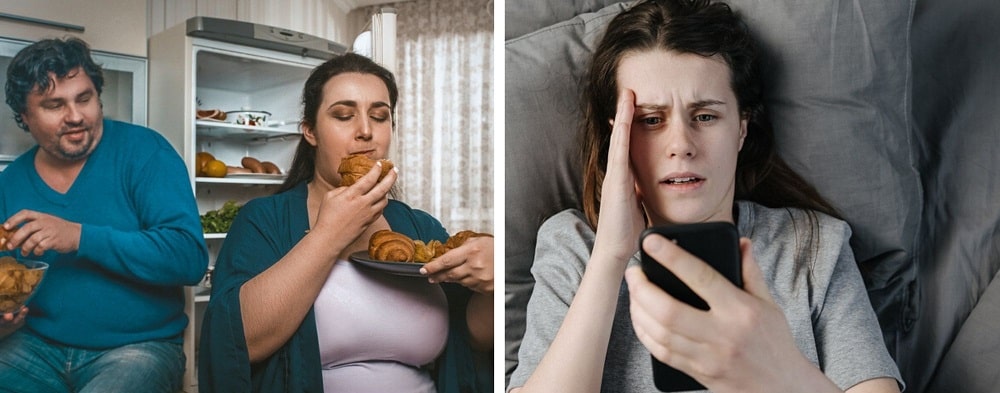

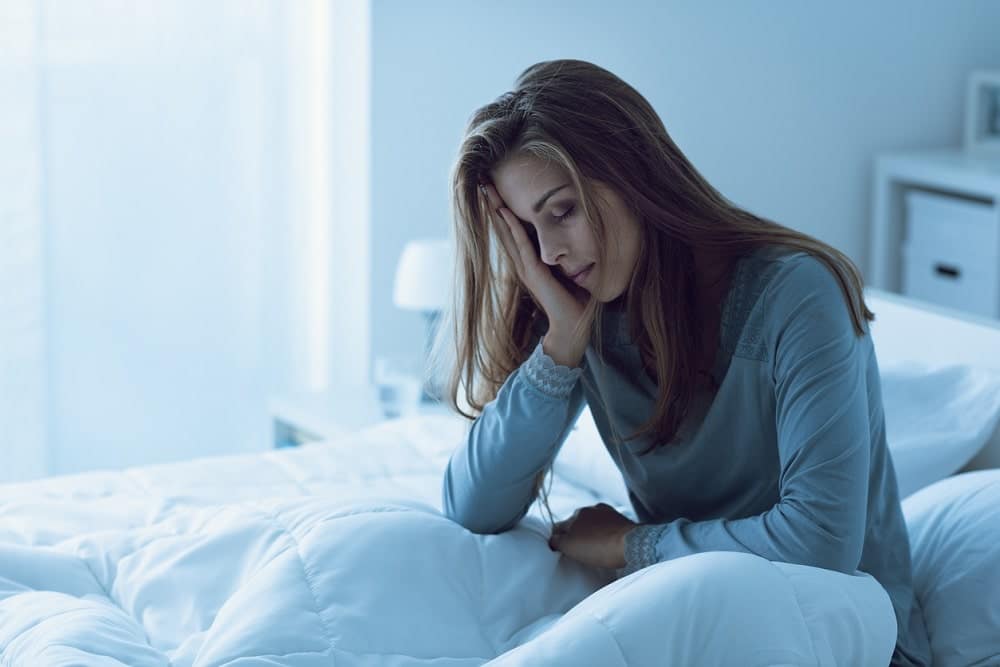

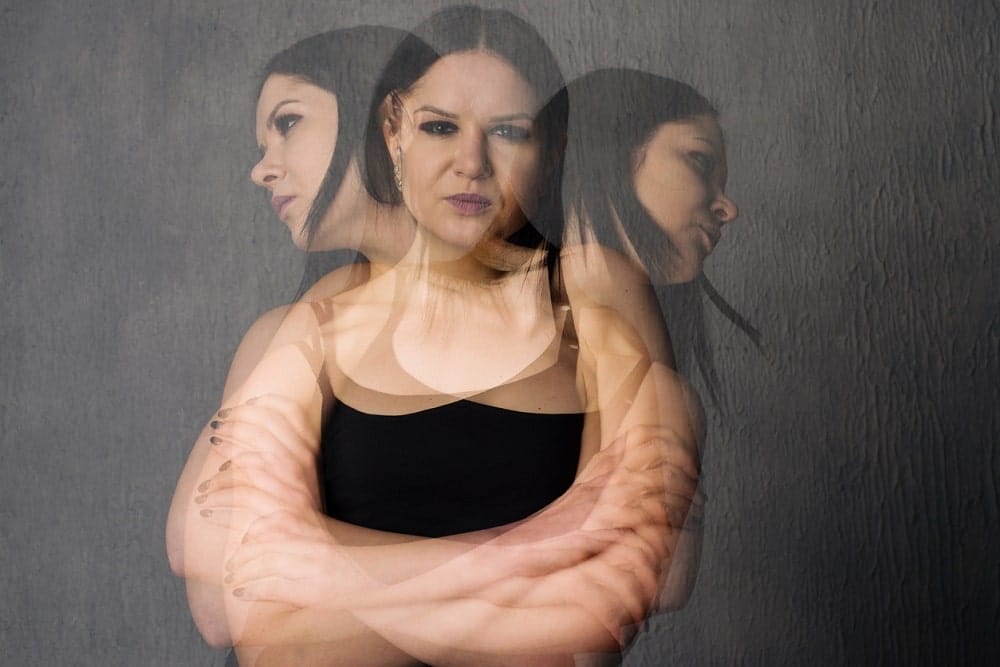
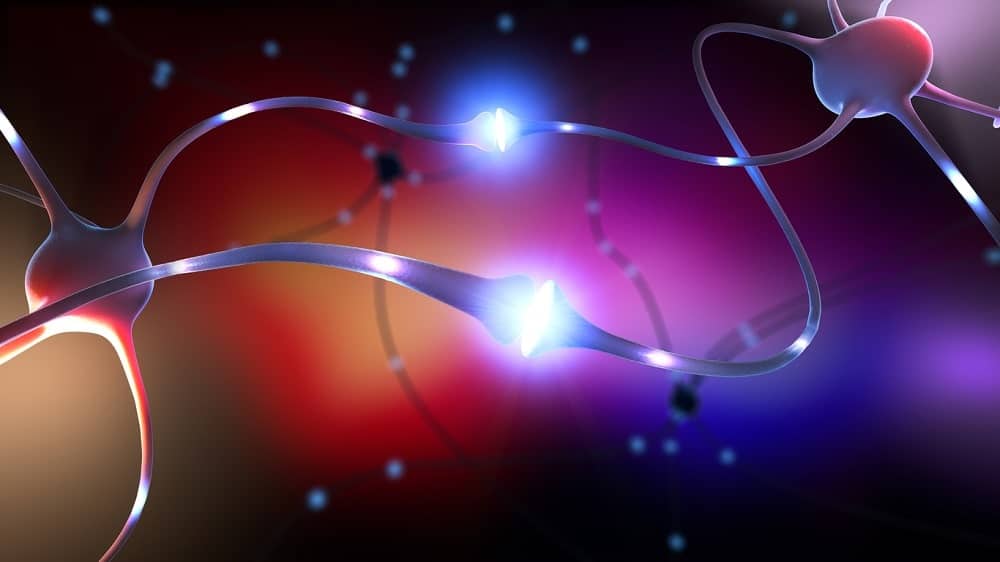
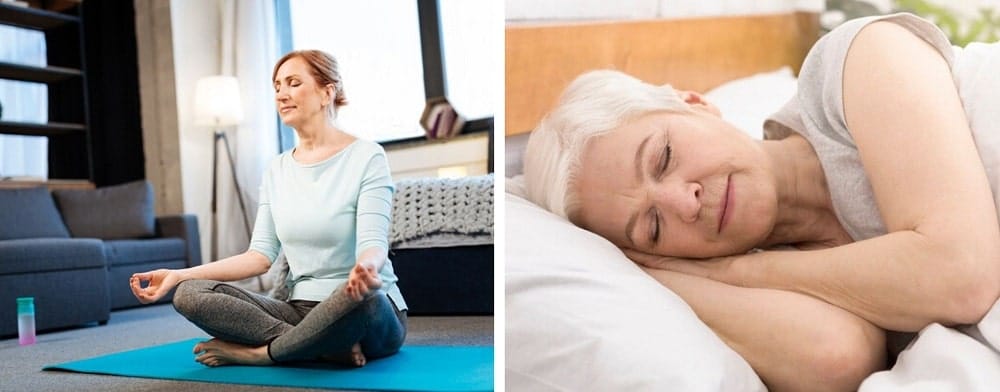
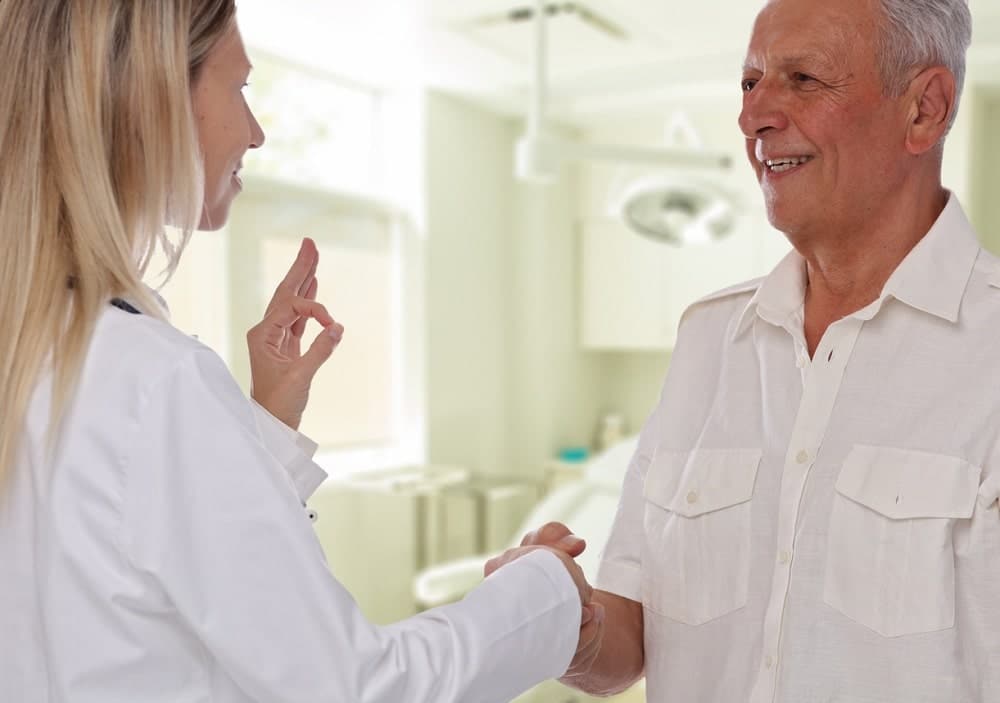
No Comments
Sorry, the comment form is closed at this time.